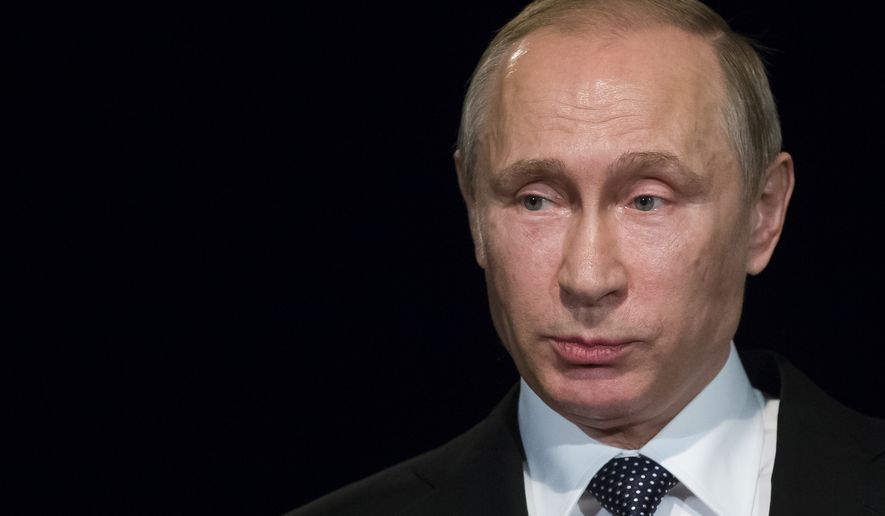Russian President Vladimir Putin signed legislation Thursday compelling telephone companies and internet providers to save and store the private communications of its customers, notwithstanding concerns raised by human rights advocates and big business alike.
Included within a package of amendments proposed as antiterrorism measures, the law will require telecoms to collect and keep copies of customers’ phone calls, text messages and emails for six months, as well as maintain metadata concerning those communications for up to three years.
Other provisions effectively outlaw the use of digital encryption within Russia and introduce new penalties for individuals accused of inciting terrorism through social media.
Edward Snowden, the former National Security Agency contractor who leaked information about the U.S. government’s intelligence gathering operations, said on Twitter that Mr. Putin’s signature authorizes “a repressive new law that violates not only human rights, but common sense,” and “must be condemned.”
“Dark day for Russia,” Mr. Snowden tweeted Thursday.
Upon signing the legislative package, Mr. Putin instructed Russia’s Federal Security Service, or FSB, to acquire in two weeks the means necessary to decrypt all data sent across the internet.
Mr. Putin has been condemned by international human rights groups during his rein for routinely restricting internet access within Russia’s border and censoring websites critical of the Kremlin. By requiring all “organizers of information distribution” to provide authorities with encryption keys that could be used to decipher secure communications, the legislation will further limit Russian citizens’ ability to communicate under the radar of an increasingly repressive government.
Last week, the United Nation Human Rights Council passed a resolution which “condemns unequivocally measures to intentionally prevent or disrupt access to or dissemination of information online in violation of international human rights law.”
Human rights concerns aside, Russian telecoms have largely opposed the package by claiming the new rules for keeping customers’ data will require the deployment of additional and expensive infrastructure.
“Putting aside the ethics, morale and philosophy of these amendments, operators will need to make huge investments into new infrastructure which does not exist at the moment,” said Egor Fedorov, an analyst of ING Bank, Bloomberg News reported.
Megafon CEO Sergei Soldatenkov told Kommersant newspaper Thursday that the bill “financially kills the telecommunication industry.”
Mr. Snowden, who has lived in Russia since exposing secrets concerning the NSA’s own surveillance endeavors, said those investments amount to a “$33 billion tax on Russia’s internet.”
In announcing Mr. Putin’s decision to sign the amendments into law Thursday, spokesman Dmitry Peskov told reporters that the president instructed the government to make adjustments if the measures indeed due pose any “financial risks.”
“The government will keep a close eye on how this law is implemented, and if some unpleasant consequences are discovered, the president will ask [the government] to take steps,” he said.
The amendments are expected to go into effect July 20.
• Andrew Blake can be reached at ablake@washingtontimes.com.




Please read our comment policy before commenting.